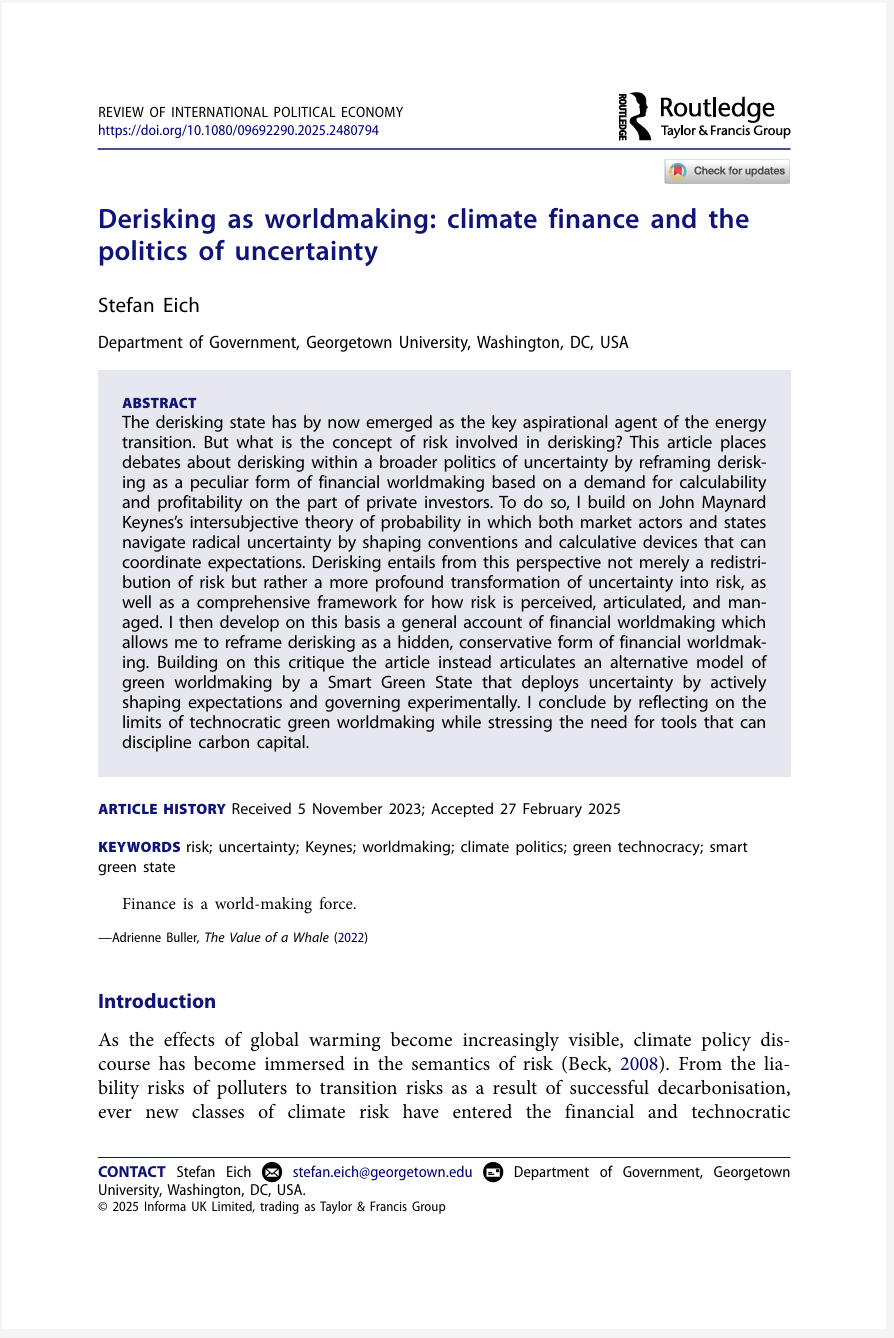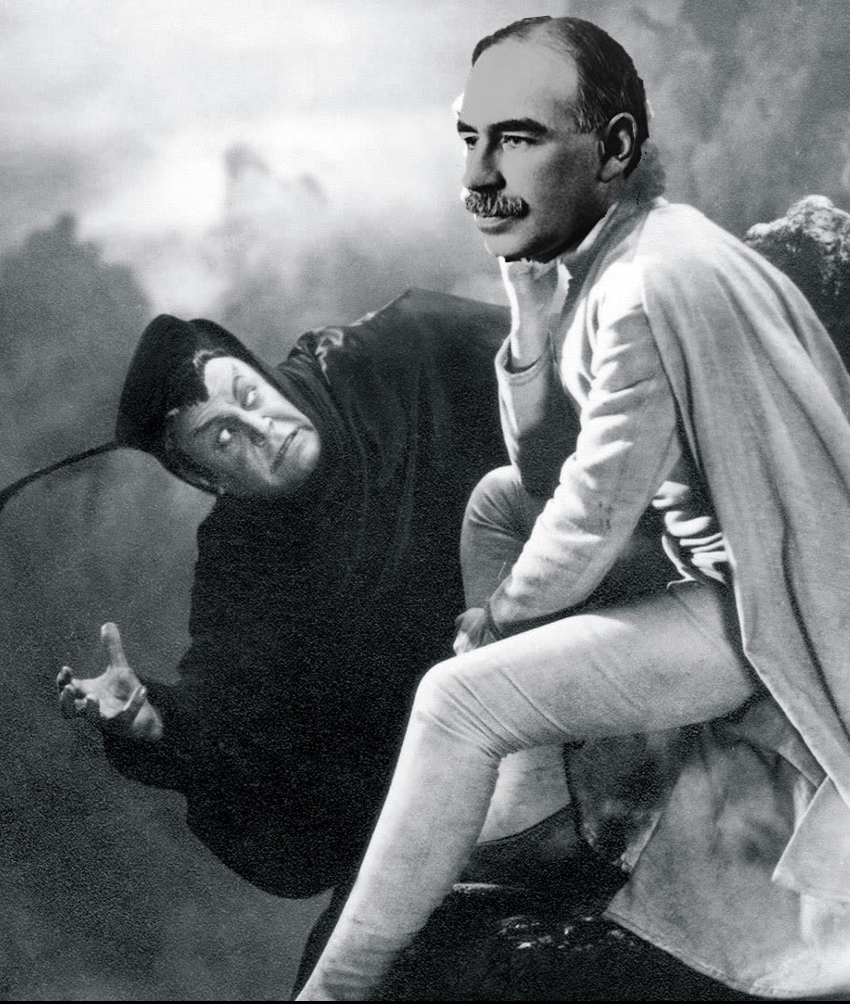Climate Politics
Democracy and Uncertainty in the Anthropocene
“Derisking as Worldmaking: Climate Finance and the Politics of Uncertainty,” Review of International Political Economy (March 2025). [PDF]
Abstract: The derisking state has by now emerged as the key aspirational agent of the energy transition. But what is the concept of risk involved in derisking? This article places debates about derisking within a broader politics of uncertainty by turning to John Maynard Keynes’s intersubjective theory of probability in which both market actors and states navigate such uncertainty by shaping conventions and calculative devices that can coordinate expectations. Derisking entails from this perspective not merely a redistribution of risk but rather a more profound transformation of uncertainty into risk, as well as a comprehensive framework for how risk is perceived, articulated, and managed. This allows me to develop an account of financial worldmaking and reframe derisking as a form of hidden, conservative worldmaking based on a demand for calculability and profitability on the part of investors. Building on this critique the article then articulates an alternative model of green worldmaking by a Smart Green State that actively shapes expectations and actively deploys uncertainty. I conclude by reflecting on the limits of technocratic green worldmaking while stressing the need for tools that can discipline carbon capital.
Adapted from F.W. Murnau’s Faust (1926)
“Mephistopheles in the Anthropocene: Keynes’s Faustian Bargain and the Politics of Green Growth” (forthcoming in Marion Fourcade, Greta Krippner, and Sarah Quinn (eds.), Political Economy, Rebooted (Duke University Press).
Abstract: Today, Keynes is once more frequently invoked under the heroic guise of Green Keynesianism. In contrast to this simplistic invocation of him as a savior figure, it is worth recovering the ways in which Keynes grappled with a profound dilemma of capitalism that we confront today in a particularly acute form with a green twist. By re-reading Keynes’s “Economic Possibilities for our Grandchildren” (1930) not as a prediction but an exercise of moral imagination and a work of speculative fiction that explores future possibilities beyond the confines of capitalism, there is much to be learned in shifting from Green Keynesianism to Keynes himself. Doing so allows us to replace the misleading certainties of Keynesianism with Keynes’s own much more ambivalent thought that speaks more productively to the dilemmas of our present. This version of Keynes is at the same time no less troubling, as I explore in this chapter through E.F. Schumacher’s influential critique. Our own impasse mirrors Keynes’s Faustian bargain in a number of curious and haunting ways. To be sure, Keynes’s reasons for imagining a world beyond perpetual growth were primarily ethical rather than ecological. But the analogy is nonetheless striking, not least because of Keynes’s ultimate insistence on the need to indulge the moral distortions of capitalism for just a little longer. The underlying stakes of this Anthropocene version of Keynes’s Faustian bargain have at the same time been further raised. And yet it is far from clear that we can afford to dismiss our Mephistopheles.
Working Papers and Work in Progress:
“Negative Capability and Speculative Fabulations. Critical Theory and Climate Politics”
The Smart Green State: Climate Finance, Uncertainty, and Democratic Experimentation (book manuscript in progress)

